35+ Abandoned Places That Were Reclaimed by Nature
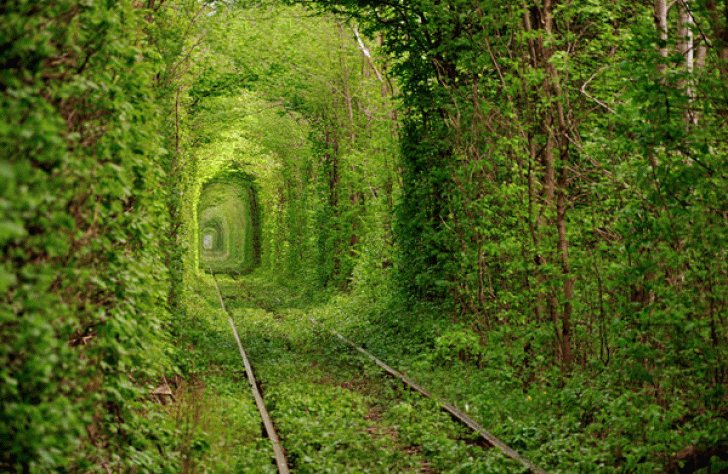
Image source: pandotrip.com
Humans have always been adopting new places to fulfill their purposes. They build cities, towns, factories, shopping malls but once they move out, due to various reasons, wildlife quickly takes over the areas.
Below are the facts about how the abandoned places were reclaimed by nature.
Vallone Dei Mulini, Italy
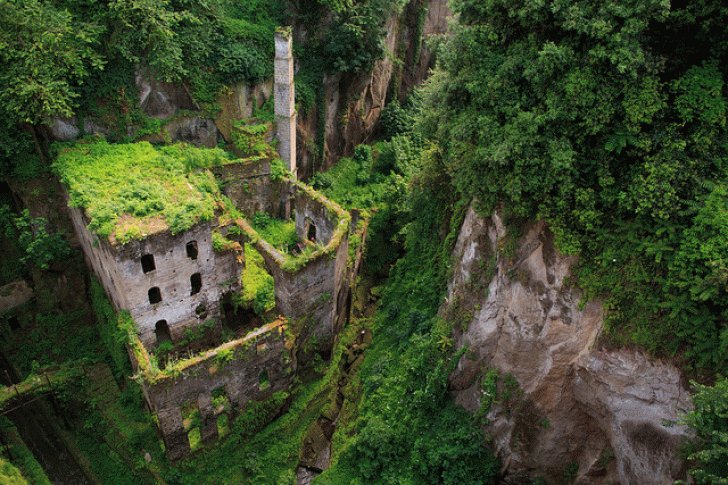
Image source: risparmioinviaggio.it
Vallone Dei Mulini Is located just behind Piazza Tasso in Sorrento, Italy. The four ancient wheat mills were built there about 700 years ago. As the place is shaped by two rivers: Casarlano-Cesarano and S. Antonino, the valley is very humid. Therefore, the area got covered with numerous unique plants.
Kolmanskop, Namibia
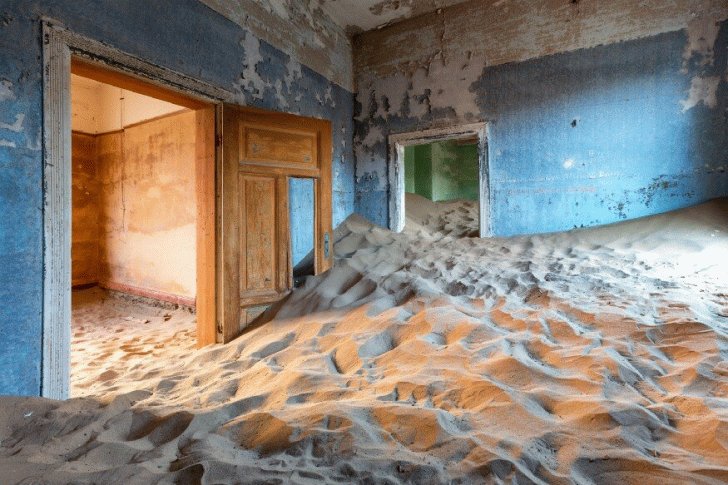
Image source: medium.com
Kolmanskop is a ghost town and a popular tourist destination in Namibia. It was built in 1908 after discovering that the area was rich in diamonds. But the town was abandoned during World War II when the price of the gemstone dropped.
Ta Prohm, Cambodia
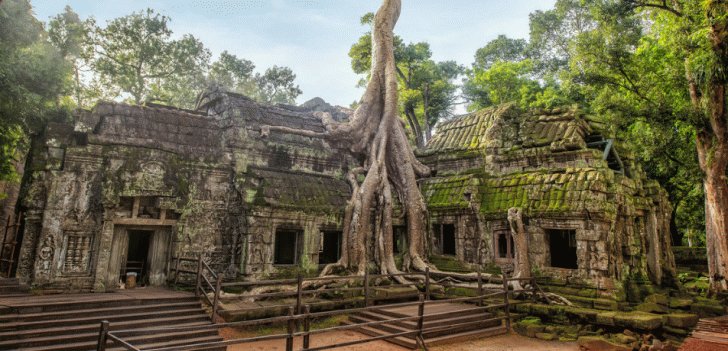
Image source: Ta Prohm Temple / SAKDAWUT14
Ta Prohm temple was neglected for many years until French archaeologists discovered it in the 20th century again. Its popularity increased after the temple appeared in the movie “Lara Croft: Tomb Raider”. What makes the architecture more special is how nature devoured Ta Prohm. The temple is covered with roots.
Houtouwan, China
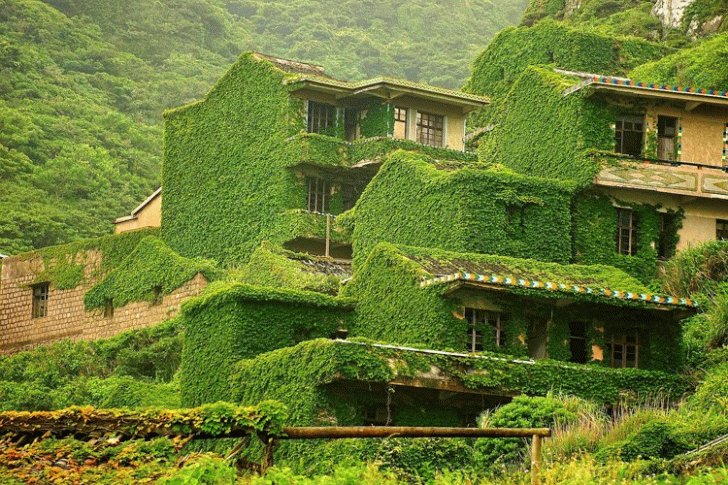
Image source: medium.com
Houtouwan is another ghost village located on Gouqi Island in China. The purpose of building the village was to provide residential areas for around 2,000 fishermen. After the growth of the fish industry in the 1990s, the bay was not enough for them. So, fishermen began to migrate with their families to the other villages. Many people visit Houtouwan as a tourist attraction. It is popular with houses that are overgrown with moss and ivy.
New World Mall, Thailand
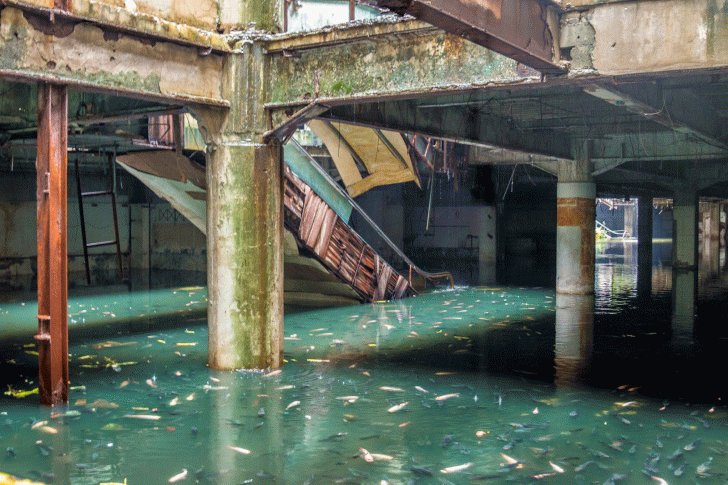
Image source: barefootonbackroads.blogspot.com
In 1997 New World Mall in Bangkok was forced to close due to breaching the building regulations. Two years later, a fire damaged the roof, so the mall was slowly filled with water. The locals decided to introduce tilapia fish there to avoid the spread of insects in the abandoned building.
Power Plant IM, Belgium
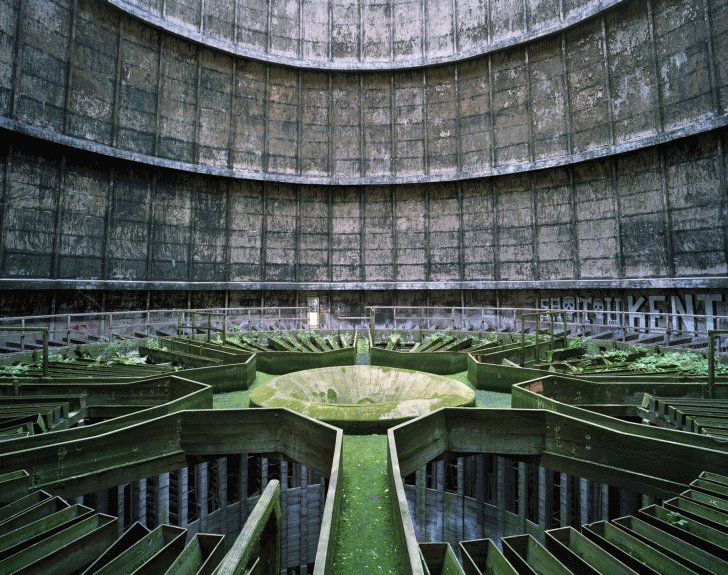
Image source: lenscloud.net
Power Plant IM is located in the Belgian town of Charleroi. In the 20th century, it remained one of the biggest coal-burning power plants in the country. The place was closed in 2007 due to excessive CO2 emission.
Château de la Mothe-Chandeniers, France
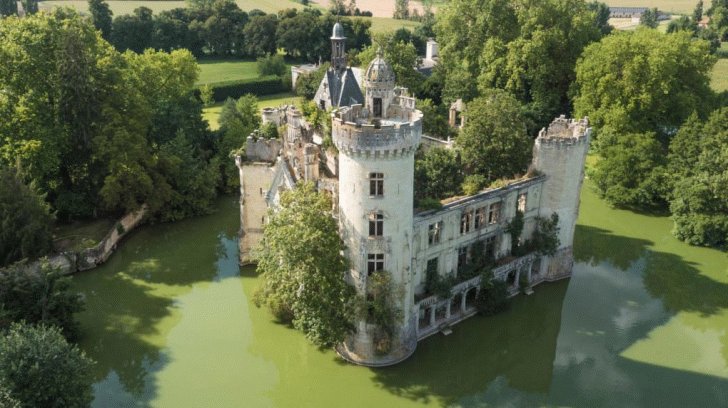
Image source: lanouvellerepublique.fr
Chateau de la Mothe-Chandeniers represents the Gothic Revival architectural style and dates back to the 13th century. The castle was owned by the Attorney General of France. It was restored in the 19th century after the French Revolution but got completely abandoned in 1932 due to fire. The castle is covered with vines, and the area is surrounded by a moat.
So Lo Pun, China
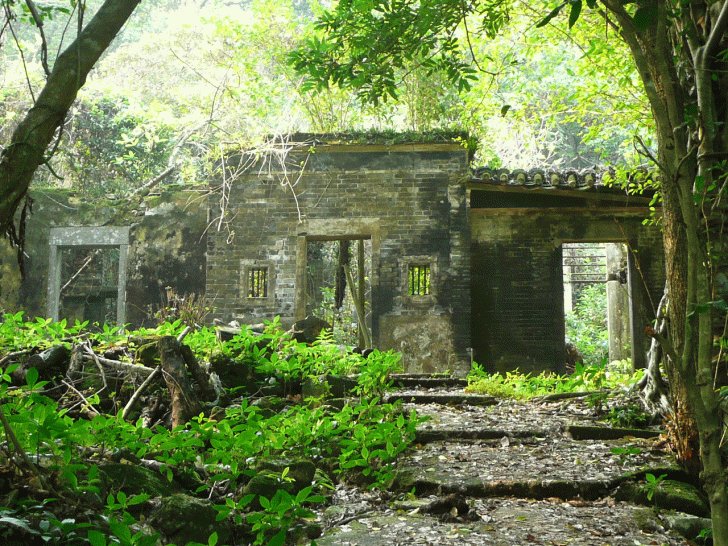
Image source: webs-of-significance.blogspot.com
So Lo Pun, which translates as “the compass is locked", is a village in Hong Kong, China. So Lo Pun had been inhabited since ancient times until the 1980s when it was deserted. The reason remains unknown. Legends say the place is haunted. Now the buildings are covered with plants due to the lack of humans.
Spreepark, Germany
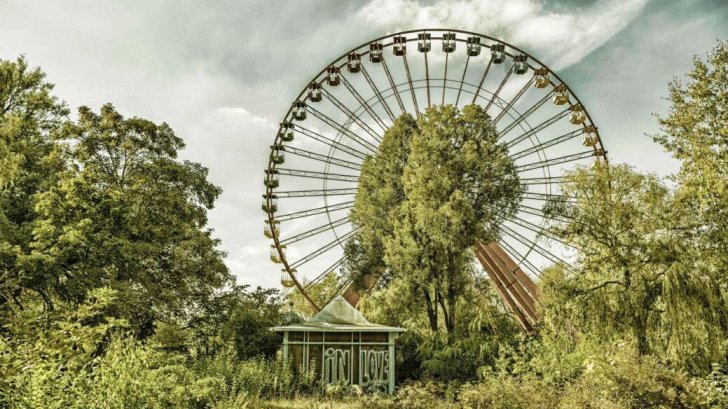
Image source: coasterforce.com
Once a famous park in Berlin, Spreepark was closed in 2002. At the end of the 19th century, the criminal activities of Norbert Witte, a park operator, and the lack of visitors led to the shutting down of the park. Spreepark is still an interesting place for tourists as it has been taken over by nature.
San Juan Parangaricutiro, Mexico
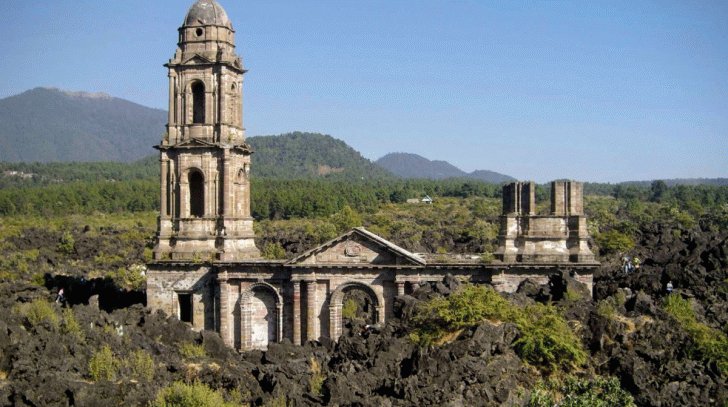
Image source: www.poandpo.com
The village around San Juan Parangaricutiro church in Mexico was abandoned after the eruption of the Parícutin volcano. The lava melted the walls of the cemetery but did not affect the tower and altar. The church still stands, but it is half-buried in lava rock.
Hashima Island, Japan
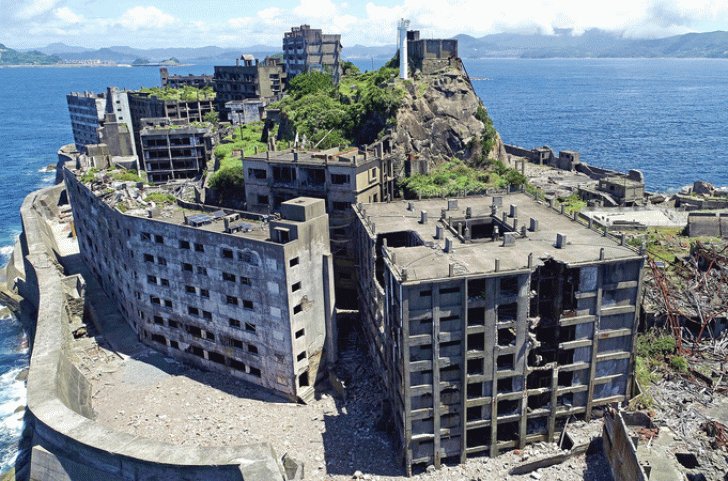
Image source: Syndication Washington Post, the Japan News-Yomiuri
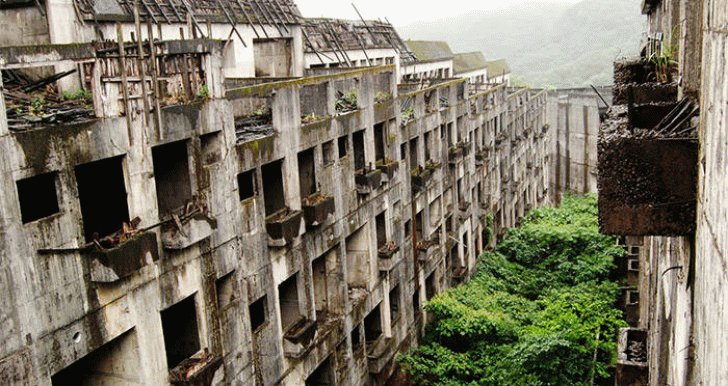
Image source: allthatsinteresting.com
Hashima Island is a ghost town in Nagasaki prefecture. As the island was rich in coal, the Mitsubishi Corporation decided to inhabit it with miners. They built ten apartment complexes where around six thousand people lived. Hashima became known as the island without green. But after the coal ran out and Mitsubishi left the island, it slowly got abandoned, and plants started to regrow.
Carbide Willson Ruins, Canada
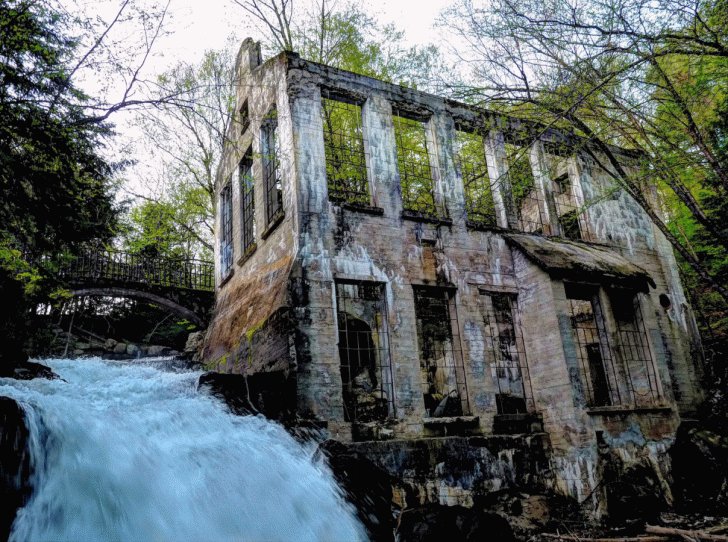
Image source: b.k./Flickr
Thomas Willson was a Canadian inventor who worked on developing a power station. He was studying the uses of calcium carbide, an industrial chemical. To prevent his ideas from being stolen, Thomas built a laboratory in the wood that is now known as Gatineau Park. Willson had to abandon the building due to bankruptcy.
Chernobyl Exclusion Zone, Belarus
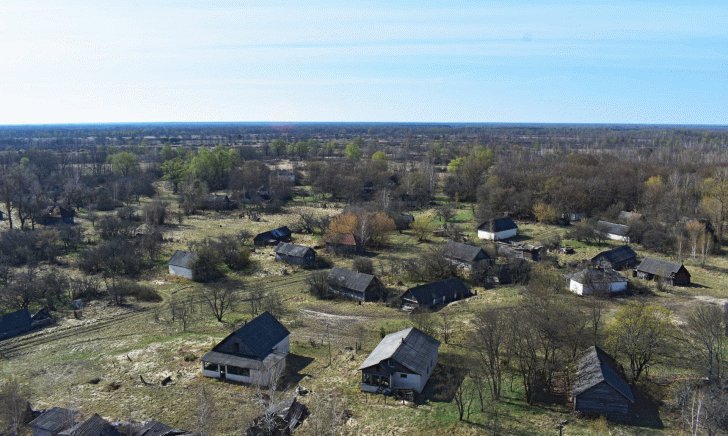
Image source: theguardian.com
After the Chernobyl disaster, radioactive fallouts spread to Belarus that was only six miles away from the site. As the contaminants caused brutal effects on the population, Belarus had to identify some areas as dead zones in the south part of the country.
Saint Nicholas Church, Republic of Macedonia
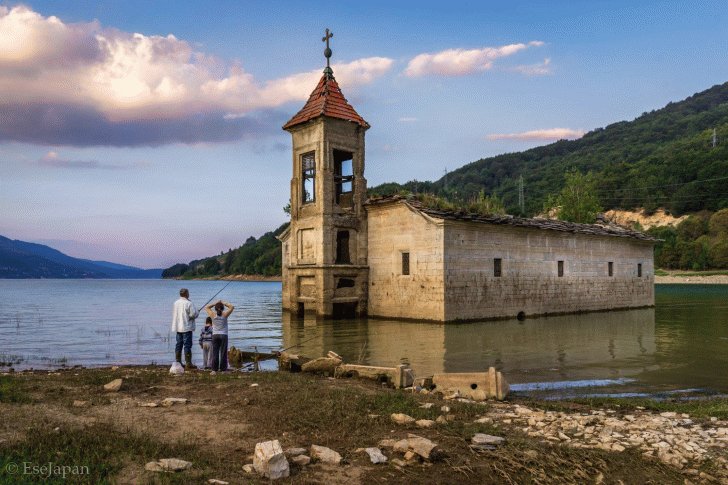
Image source: EseJapan/twitter
Saint Nicholas Church, located in Mavrovo, Republic of Macedonia, was flooded due to the construction of a power station nearby. It is possible to see the church on top of the water only in summer.
Ardtully Castle, Ireland
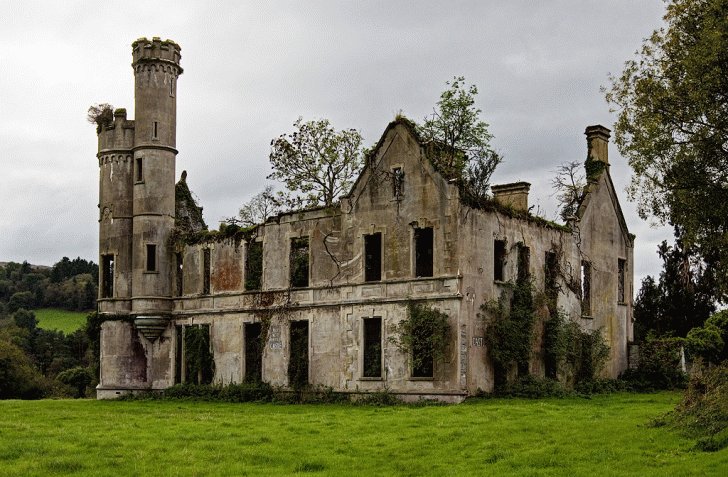
Image source: Mike Searle
Ardtully castle was built in the 13th century near Kilgarvan, Ireland. It was rebuilt several times as a monastery, castle, and mansion house. In 1921, during the Irish War of Independence, a fire destroyed the castle. Now the building remains a walled garden.
Train Station, Georgia
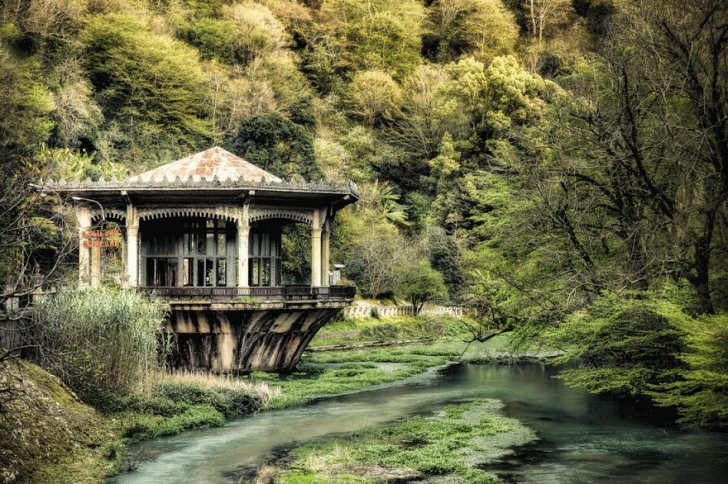
Image source: James Kerwin
The train station located in Abkhazia, Georgia, was a strategic railway for the Transcaucasian region. It was opened in 1871. After the beginning of the war there, the railway, restaurants, and sanatoriums were destroyed and abandoned.
The Radioactive Ghost City of Pripyat, Ukraine
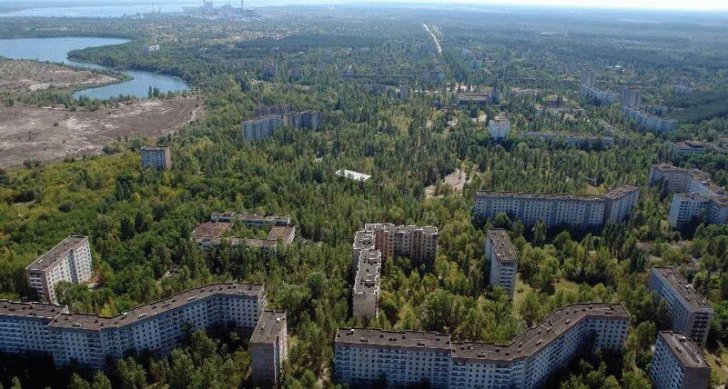
Image source: greentourua.com
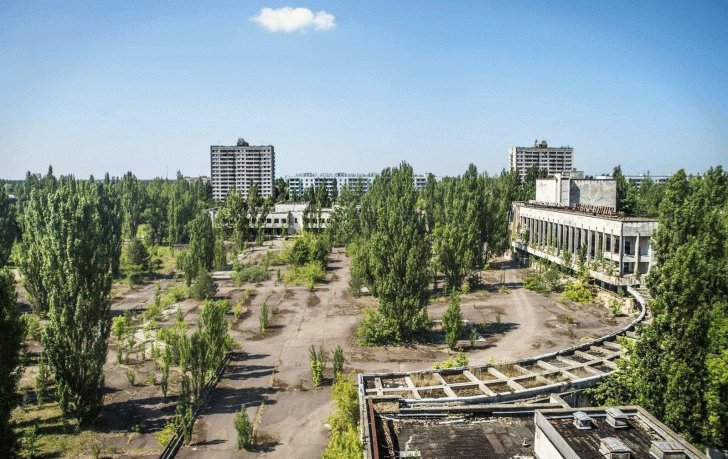
Image source: fshoq.com
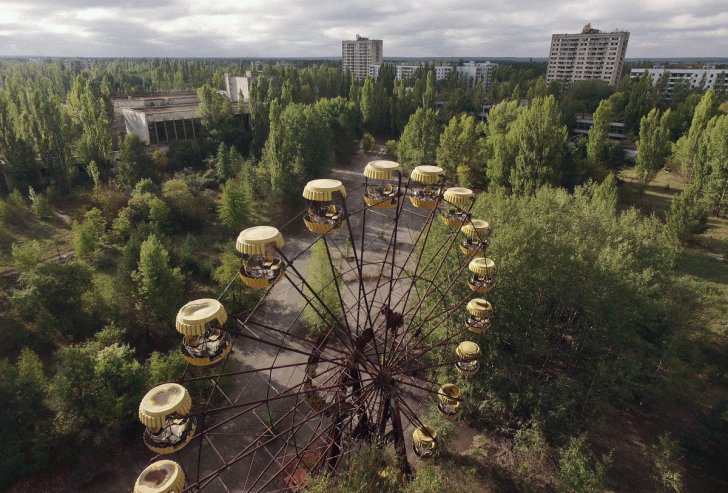
Image source: Sean Gallup / Getty
On April 26, 1986, the 4th reactor in Chernobyl Nuclear Station in Ukraine exploded during a test. The building began to emit radioactive chemicals that spread to Ukraine and the other countries of Europe. The closest town to the station was Pripyat. On April 27, the city of almost 50,000 people was completely evacuated. Despite the high level of radiation, since the day it was abandoned, the population of animals in the town has been growing enormously.
Oradour-sur-Glane, France
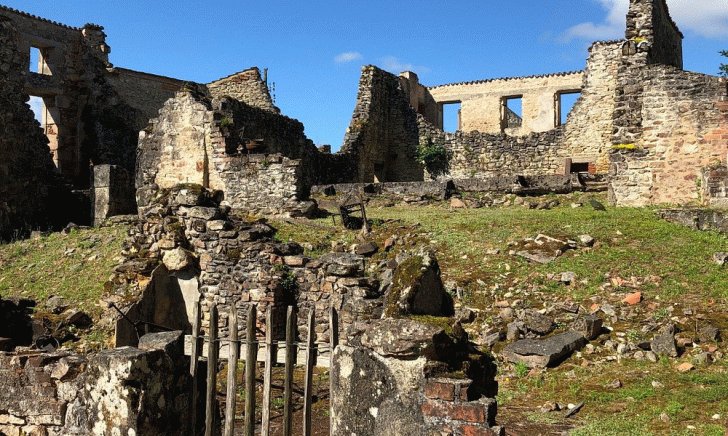
Image source: tripadvisor.com
On June 10, 1944, German troops destroyed the village of Oradour-sur-Glane, where farmers and their families lived. At that time, Charles De Gaulle decided to preserve the village to remind future generations about the disastrous consequences of wars. There is a sign at the entrance to the village that says “Remember”.
SS Ayrfield, Australia
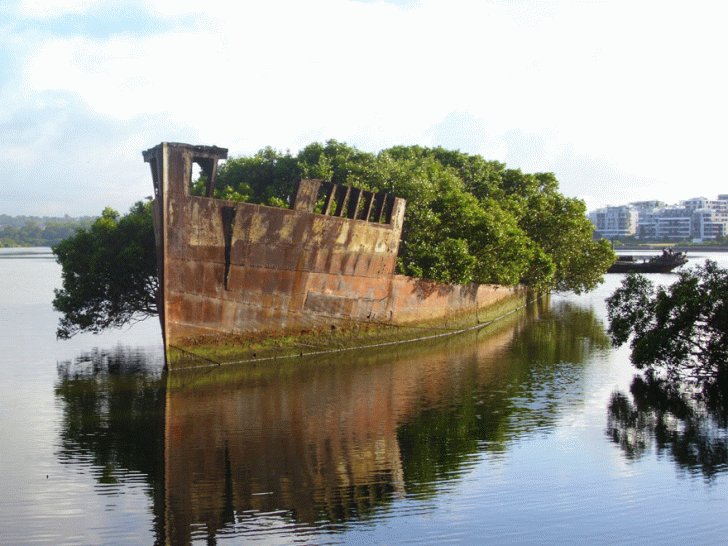
Image source: Flickr/AndyBrii
The SS Ayrfield, a floating forest, is a shipwreck that has stood in Homebush Bay, west of Sydney for several decades. As the bay was contaminated, many shipwrecks that had been used for transporting war supplies were left on the water. After several years, the SS Airfield got covered with mangrove trees that created an exceptional landmark.
Año Nuevo Island, USA
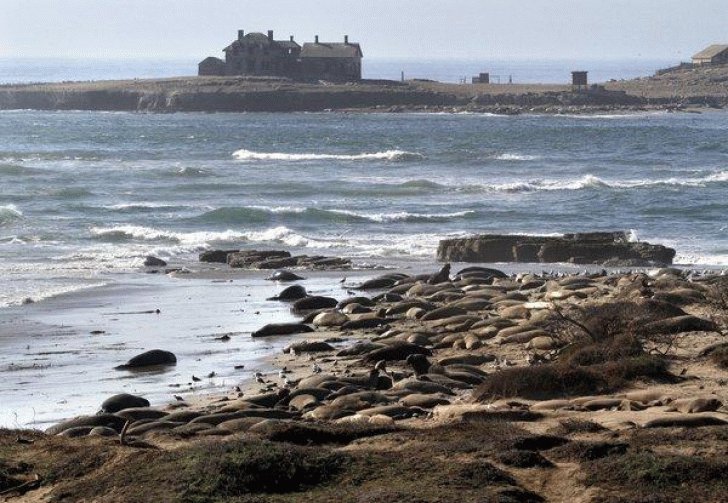
Image source: mercurynews.com
Año Nuevo is an Island situated near California's northern coast. The reason for being abandoned was the rising water levels. After that, thousands of sea lions and seals appeared on the island and made it their sanctuary.
Tequendama Falls Museum, Colombia
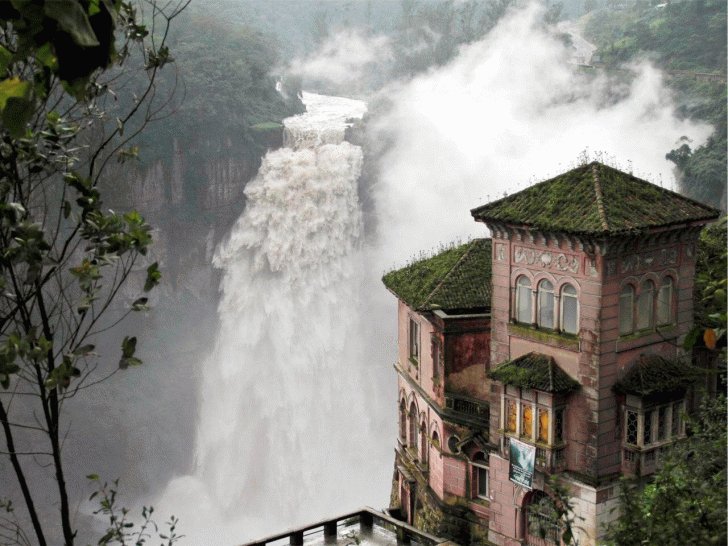
Image source: sportingz.com
This gorgeous museum situated in San Antonio, Colombia, overlooks Tequendama Falls. Hotel del Salto functioned in the building until the 1920s. It was abandoned after the river contamination.
Bannerman Castle, USA
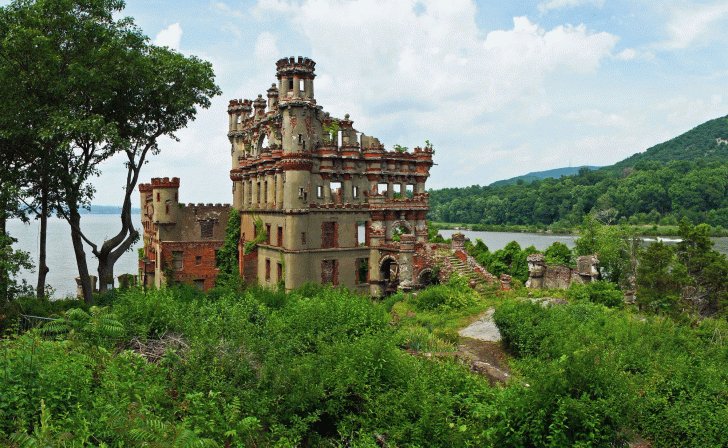
Image source: Flickr/H.L.I.T
Bannerman Castle, located on Pollepel Island, New York, was built by Francis Bannerman, an arms dealer. The building aimed to keep his arsenal of munitions. In 1920, the castle was exploded, and as Bannerman had already been passed away, the building was abandoned, and eventually, it became part of Hudson Highlands State Park Preserve.
Al Madam, United Arab Emirates
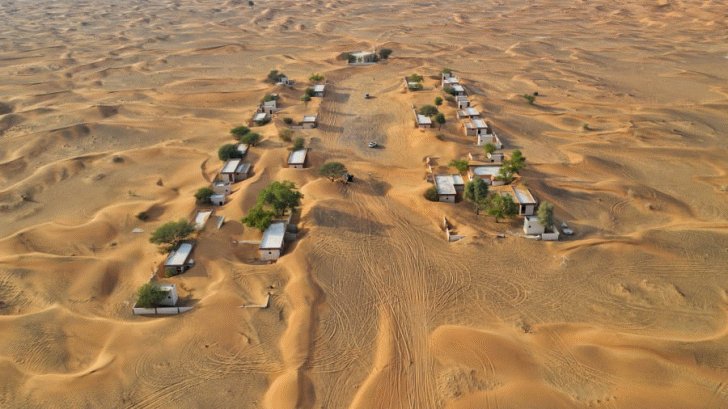
Image source: Fredods
Al Madam, a ghost town that vanished in dunes, was left for mysterious reasons. Some say it is connected to supernatural creatures, while others assert the inhabitants were running away from the encroaching of the desert. There are two rows of houses and a mosque in the town, all of them filled with sand.
Hasar de Cheratte, Belgium
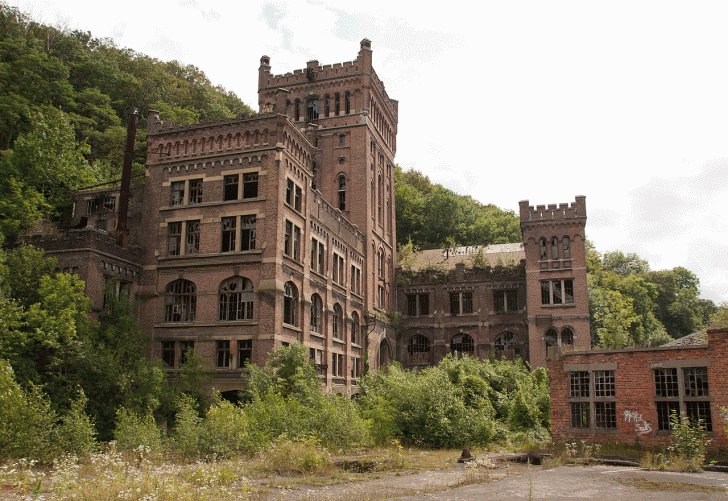
Image source: Johan Bakker
Hasard de Cheratte, the coal mine, is situated near Visé, Belgium. The complex consists of four shafts. The area was first opened in 1950 but after thirty years due to an accident was closed. It was reopened from 1907 to 1977. The building has been slowly covered with trees.
Villers Abbey, Belgium
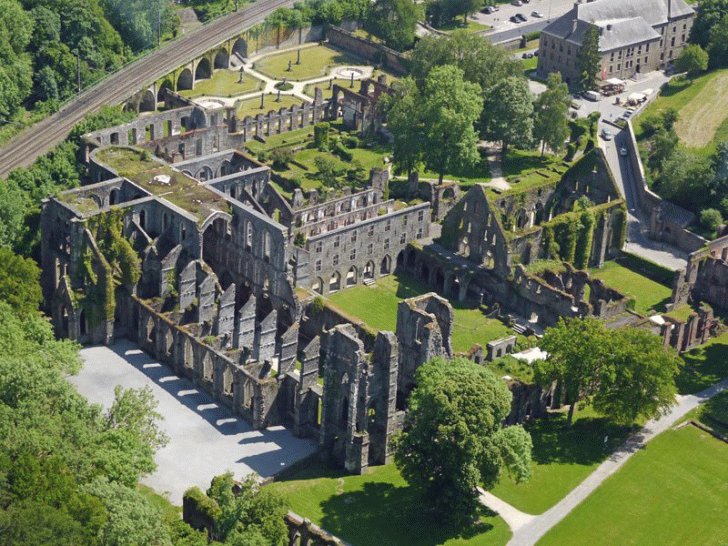
Image source: twistedsifter.com
Villers Abbey, a cultural heritage situated in Villers-la-Ville was founded in 1146. In 1796, due to a lack of monks and funds after the French Revolution, the abbey was fully abandoned.
Villa Epecuén, Argentina
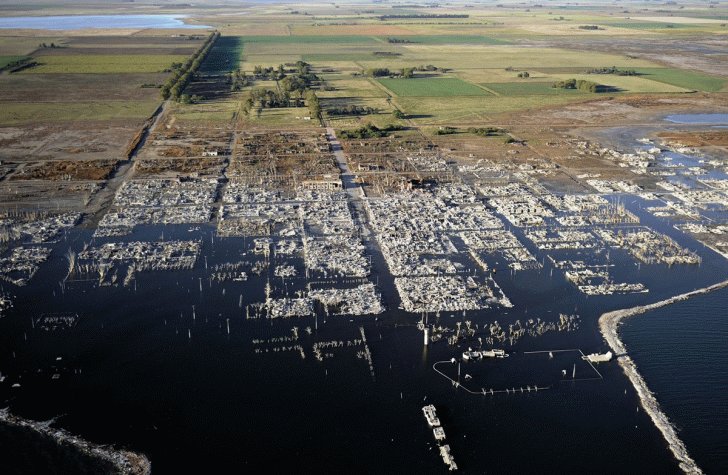
Image source: Juan Mabromata/AFP
Villa Epecuen was a small village in Buenos Aires Province, Argentina. In 1985 weather changes caused the rising water levels in the lake that eventually flooded the village. The area had been covered with water for 30 years, until 2009. After the village reemerged, it turned into a ghost town.
La Petite Ceinture, France
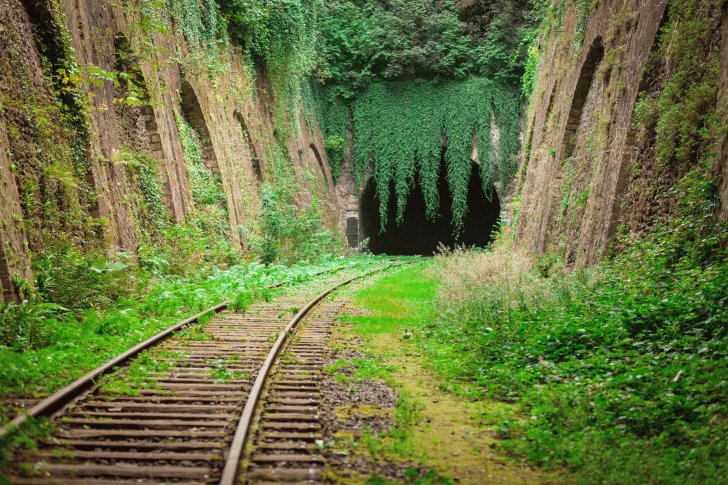
Image source: reddit.com
The Petite Ceinture, a railway line in Paris, is no longer used. The place has been abandoned since 1934. Approximately 200 species of plants and wildflowers and 70 species of animals can be found there.
Ross Island, India
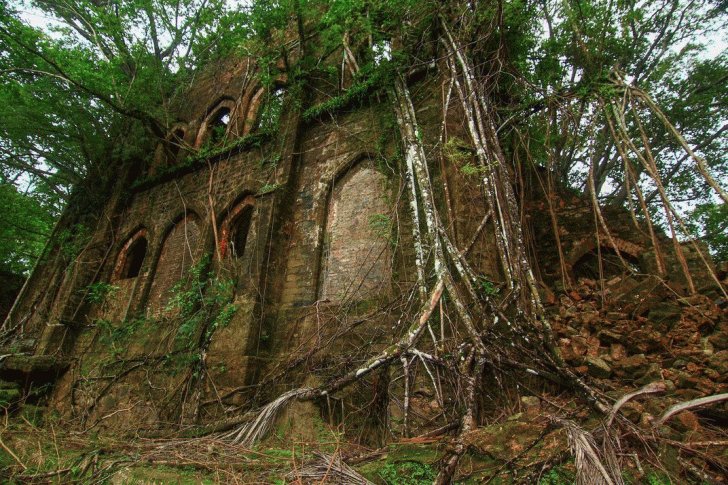
Image source: smithsonianmag.com
Ross Island is located in South Andaman. Most of the buildings there were built by Indian prisoners when the area was occupied by Britain. The island was abandoned after an earthquake that happened in 1941. As it is forbidden to live on Ross Island, the old buildings are covered with plants, remaining a sanctuary for various species of birds and animals.
Tunnel of Love, Ukraine

Image source: pandotrip.com
One of the most romantic places, the Tunnel of Love, is located in Klevan, Ukraine. The railroad is determined only for a private train. What makes tourists attracted to this site is the fact that the tunnel is formed from trees.
North Brother Island, USA
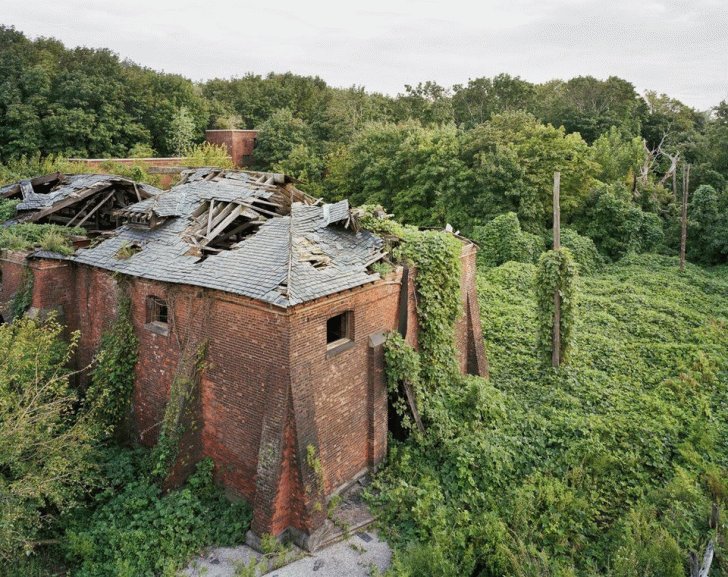
Image source: Christopher Payne
North Brother Island was not inhabited until the end of the 19th century when Riverside Hospital was built for treating people with contagious diseases. The hospital was permanently closed after World War II. The hospital building ruins are a sanctuary for Black-Crowned Night Herons.
The Scola Tower, Italy
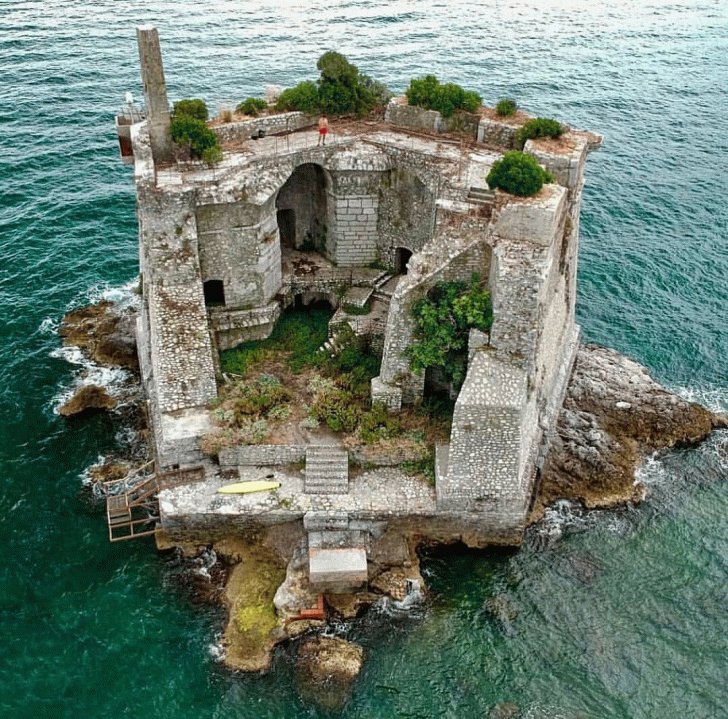
Image source: unusualplaces.org
The Scola Tower, also known as the tower of St. John the Baptist, was constructed in 1606. The tower is more than 42 feet tall and was used for military purposes. After the British bombardment, the tower was seriously damaged and abandoned.
Akarmara, Georgia
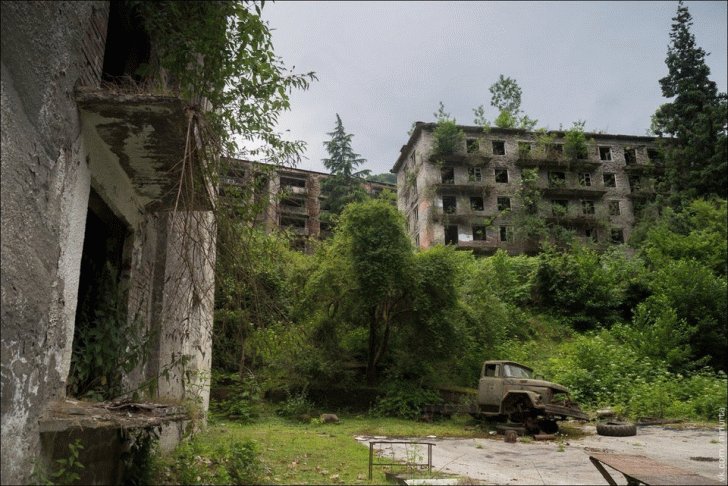
Image source: reddit.com
Akarmara is a ghost town that was built near mine shafts in Abkhazia, Georgia. The factories and apartments were left by more than 5 thousand people in the early 1990s during the War in Abkhazia.
Kawaminami Shipyard, Japan
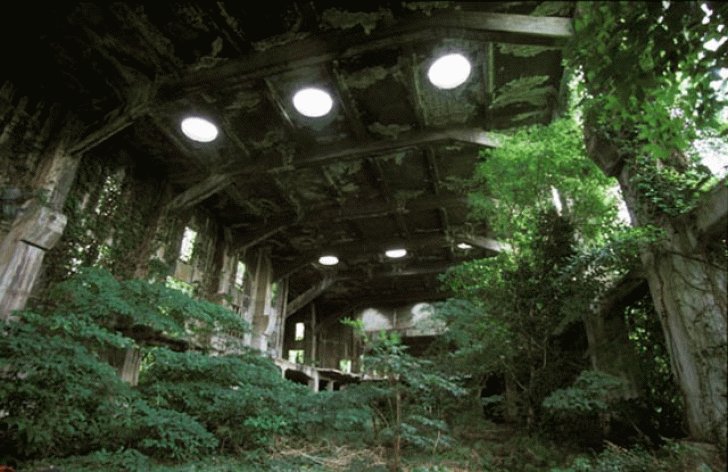
Image source: artificialowl.net
Kawaminami Shipyard is situated in the Saga prefecture, Japan. During the war between Japan and China, boats and ammunition were produced in the building.
Holland Island, USA
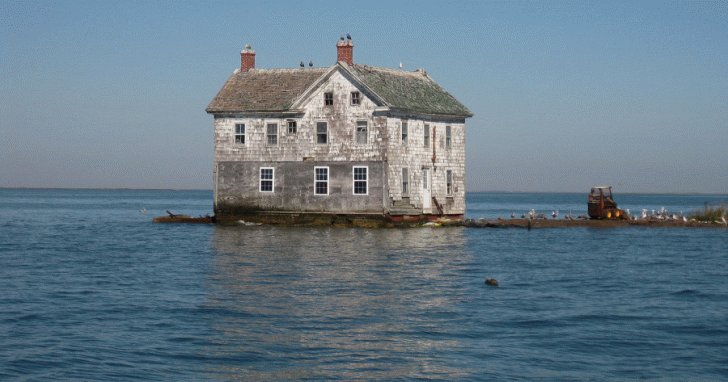
Image source: sometimes-interesting.com
Holland Island was settled at the beginning of 1600. A post office, a church, a school, and houses were located on the island. However, erosion and rising sea levels forced the inhabitants to completely leave the island by 1918.
The Church of Saint-Étienne-le-Vieux, France
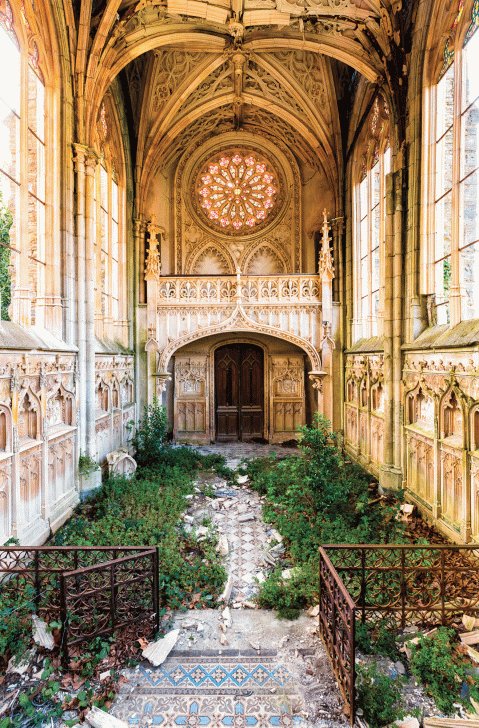
Image source: jornalcatarse.files.wordpress.com
The Church of Saint-Étienne-le-Vieux is located in Caen, an old city in France. The church dates back to the 11th century and has a long history of being reconstructed. The last time it was hit by German tanks was in 1944. The church has not been restored since then and is not open to visitors.
New Smyrna Beach Sugar Mill Ruins, Florida
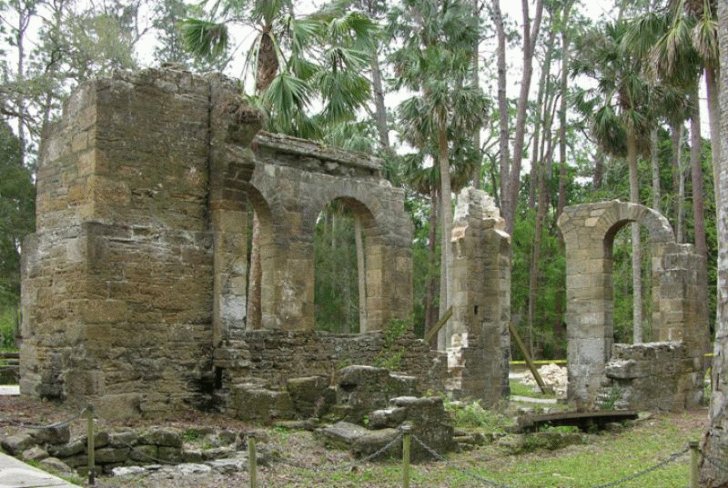
Image source: myfloridahistory.org
Sugar Mills near New Smyrna Beach, Florida were built by Henry Cruger and William DePeyster in 1830. The mills were mostly burned down during the Second Seminole War in 1835.